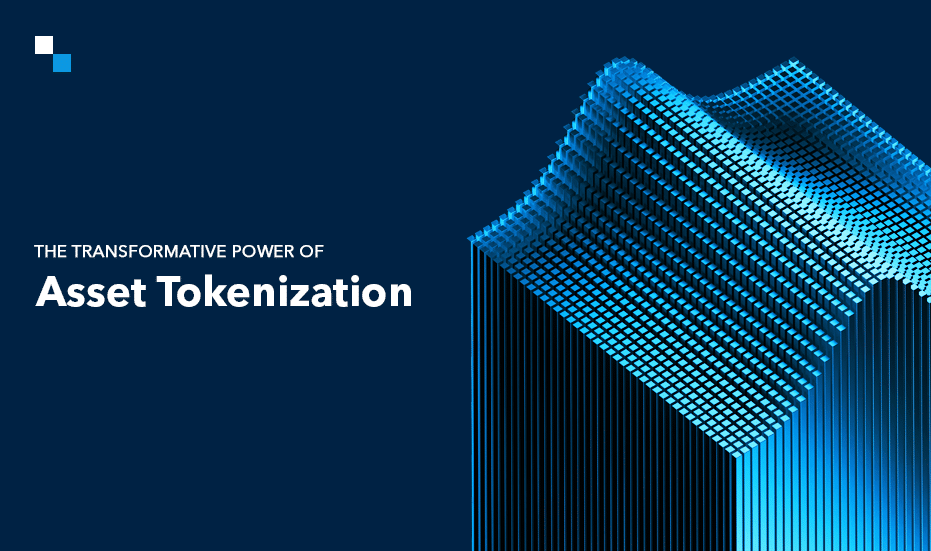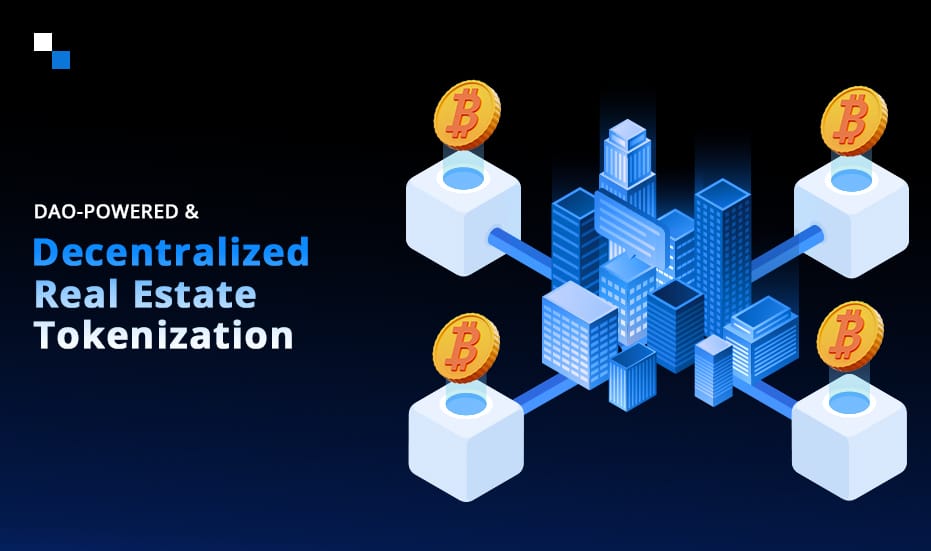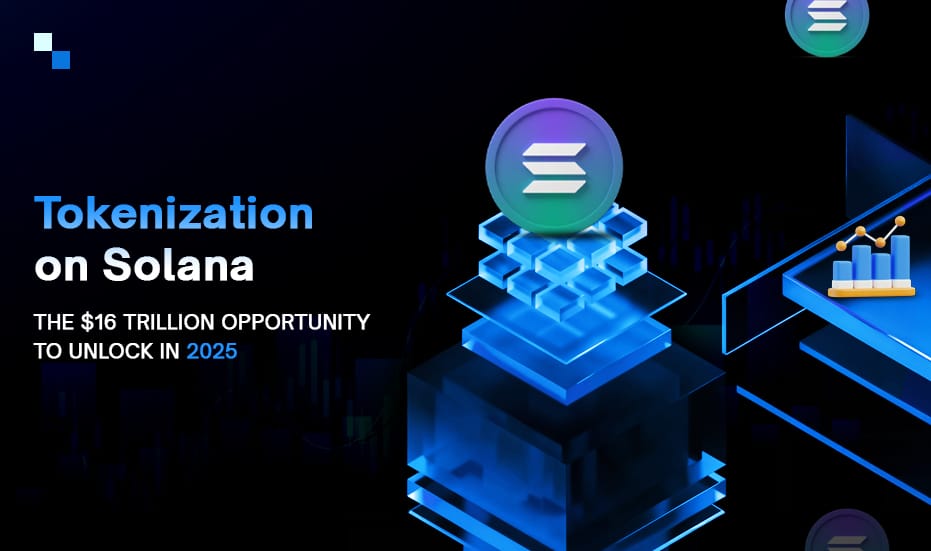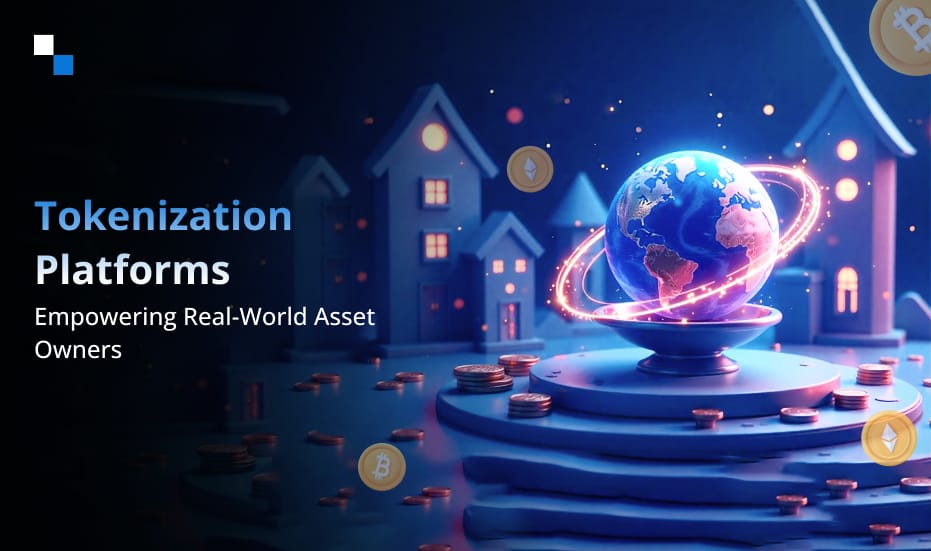
Metaverse In Fashion Industry: Role of Utility NFTs
September 24, 2024
Achieve ICO Success in 7 Days with Antier’s Proven Approach
September 25, 2024Asset tokenization is shaking up how we think about investing and ownership. Owning a tiny piece of any big famous painting or share of an expensive house without having to make a million dollars becomes realizable. And the very idea is to transform physical and some intangible assets into digital tokens issued on the blockchain brings exciting opportunities for a wider range of investors who can participate in markets that were otherwise difficult to access. Let’s dive into real world asset tokenization!
The Process of Asset Tokenization
Let’s break down how asset tokenization actually works. It’s not just a fancy tech term—it involves several steps that make it all come together:
1. Asset Identification
First off, for tokenizing real-world assets, you need to decide what asset you want to tokenize. It could be anything from real estate to art or even collectibles. This step is crucial because the choice of asset can determine the interest it generates among investors.
2. Valuation
Next, you need to get the asset valued. This valuation helps establish how many tokens will be created and what their initial price will be. A fair valuation not only sets the stage for a successful launch but also instill confidence in potential investors.
3. Legal Framework
Now comes the legal part. It’s important to have a solid legal structure in place that outlines ownership rights and complies with regulations. This protects everyone involved and ensures that the tokenized asset is treated fairly.
4. Token Creation
Once the groundwork is laid, the actual tokens are created on a blockchain. Each token is linked to a fraction of the asset’s value. For example, if you have a property valued at $1 million and you create 1,000 tokens, each token represents a $1,000 stake.
5. Implementation of Smart Contracts
Smart contracts automate various aspects of the investment process. These self-executing agreements handle tasks like transferring ownership and distributing profits, making everything smoother and less prone to errors.
6. Listing on Exchanges
Finally, the tokens can be listed on exchanges, allowing investors to buy, sell, or trade them. It creates a marketplace where assets can be actively managed and traded.
The Benefits of Asset Tokenization for Investors and Companies
For Investors:
- Increased Liquidity: Asset tokenization increases liquidity. By splitting an asset into smaller tradable units, it allows investors to buy or sell more than could be traditionally done.
- Fractional Ownership: With tokenization, there is also the fractional ownership that opens the channel for more individuals to invest in high-value assets. There is no necessity to liquidate such a huge amount of money to get started; you can have just a piece of the asset.
- Global Access: With asset tokenization, you invest in opportunities found all around the globe. International investments start opening their arms for you and help you diversify your portfolio through which you reduce the risks.
- Transparency: Blockchain’s public ledger will create the record of all transactions transparently and increase the confidence of investors by reducing the chances of fraud.
For Companies:
- Capital Raising: For companies, tokenizing assets can indeed be the game-changer. It offers an innovative way of raising funds in a broader range of investors who could not have been reached through traditional means.
- Cost Efficiency: RWA Tokenization eradicates intermediaries and saves on transactional costs, which makes asset management cheaper for companies, hence increased profit margins.
- Enhanced Security: The inherent security system of blockchain technology inhibits fraud, and thereby gives confidence to both companies and investors.
How Tokenization is Revolutionizing Real Estate Investments?
Real estate is an excellent illustration of how tokenization is revolutionizing investment landscapes. For many years, investing in real estate demanded significant sums of money and became impossible for many. Here is how things are now changing with real estate tokenization:
- Accessibility: Anyone can now invest in a share of a property through tokenization. This allows everyday investors to dive into real estate without requiring the massive upfront payments.
- Faster transaction Process Efficiency: The purchasing and selling of tokenized real estate can be made many times faster compared with usual transactions. Goodbye to long tails of paperwork and time used in traditional transactions!
- Innovative Funding Structures: New investment structure, such as blockchain-based REITs, will allow for greater diversification and flexibility in investments.
Asset Tokenization Impact on Traditional Financial Systems
Asset tokenization causes a lot more ripples than just on the individual investor or company level; traditional financial systems are taking a hit:
- Disruption of Intermediaries: In the process, tokenization cuts down bank and broker dependency. This is changing the entire paradigm of doing financial transactions by removing intermediaries. Therefore, asset owners and investors are brought into immediate contact with each other.
- New Investment Paradigms: Tokenization democratizes access to investment opportunities between high-value assets among a wider diversification of investors.
- Simplified Regulatory Compliance: Asset tokenization makes regulatory complexity easier to deal with since smart contracts in themselves enable automated compliance, while corporations are enabled to be on the right side of the law.
Regulatory Landscape for Asset Tokenization
- Securities Laws: Many tokenized assets may be classified as securities, meaning compliance with relevant regulations is essential. Understanding these laws can protect both companies and investors.
- Tax Implications: Tokenization can carry tax consequences, so it’s important to be aware of potential liabilities.
- Consumer Protection: Regulatory frameworks should prioritize consumer protection, ensuring that investors are safeguarded against fraud and misrepresentation. For a more detailed worldwide regulatory framework, you can go through this blog.
How to Choose the Right Asset Tokenization Company
Finding the right partner for real world asset tokenization is crucial. Here are some tips on what to look for:
- Experience and Reputation: Seek out a company with a proven track record. Reviews and case studies can offer insight into their success and capabilities.
- Legal Compliance: Ensure they have a solid understanding of legal requirements in your area. A knowledgeable partner can navigate regulations more effectively.
- Technology Infrastructure: Look for a platform that is secure, scalable, and user-friendly. A good tech foundation can make a big difference in your experience.
- Customer Support: Choose a company that offers strong customer support. They should be available to guide you through the process and assist you after the initial launch.
Challenges and Solutions in Asset Tokenization
Despite its potential, asset tokenization does face challenges. Here’s a look at some common issues and how companies like Antier are addressing them:
1. Regulatory Hurdles
Challenge: The regulatory environment can be complex, with different rules in various jurisdictions, creating uncertainty.
Solution: Antier has in-house legal experts to ensure that all asset tokenization projects comply with local regulations. By navigating these complexities, the company helps build investor confidence and reduce risks.
2. Market Volatility
Challenge: The price of tokenized assets can be volatile, which can make some investors nervous.
Solution: Antier emphasizes thorough market research and risk assessments. The company provides insights to help investors make informed decisions, reducing the impact of volatility.
3. Technological Barriers
Challenge: The tech behind blockchain can be intimidating for newcomers, potentially discouraging participation.
Solution: Antier focuses on creating user-friendly platforms that simplify the asset tokenization process. It also offers educational resources to empower investors and make the tech more approachable.

Future Trends in Asset Tokenization
As the world of real-world asset tokenization evolves, several trends are emerging that could shape its future:
- Increased Institutional Adoption: More institutions are starting to recognize the benefits of tokenization, leading to a surge in institutional investment in tokenized assets.
- Integration with DeFi: The intersection of asset tokenization and decentralized finance (DeFi) is creating new investment products and opportunities.
- Greater Regulation: As the market matures, we can expect clearer regulatory frameworks to emerge, which will enhance security for investors.
Conclusion
Asset tokenization is not just a passing trend rather, it’s the investment revolution. By leveraging blockchain technology, assets are made more accessible, liquid, and secure. RWA tokenization has been used as a way to break down barriers and open new avenues for investments. Being inundated by the complexities of regulation and technology, it certainly seems that the future of asset management largely falls under the category of asset tokenization. The opportunities are tremendous for investment for investors and companies alike by this new innovative approach. To build your own tokenization platform, get in touch with the best asset tokenization company, Antier and turn your vision into reality.



